#ian martin's novels
Text

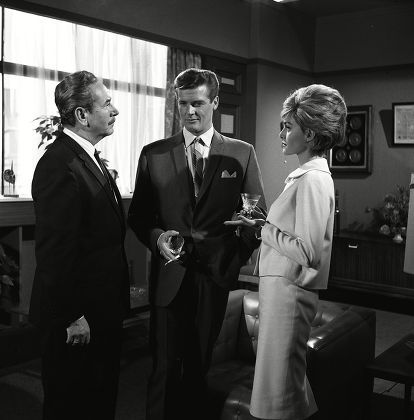


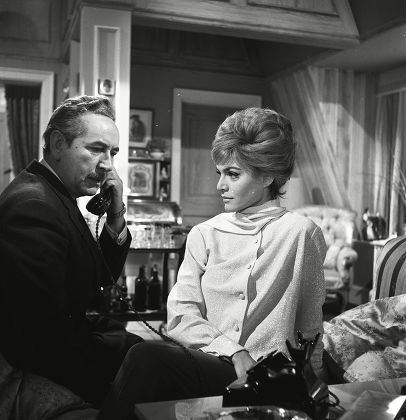
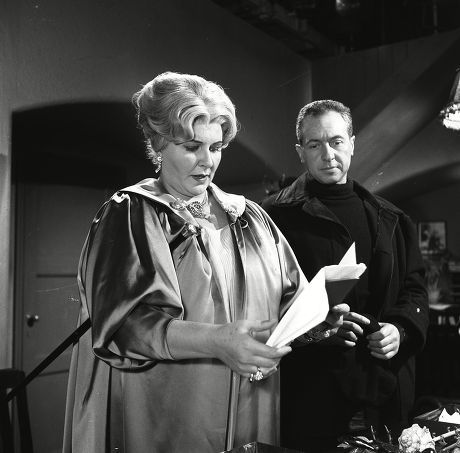

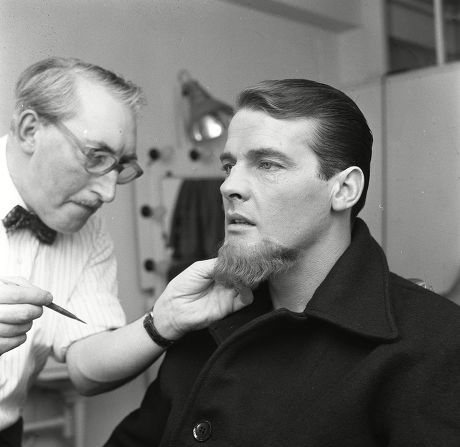
The Saint: The Saint Sees it Through (2.27, ITC, 1964)
"Ernst... aren't you ever afraid?"
"I discipline my mind. I'm learning gradually to discipline others. With you I failed. But it doesn't matter."
#the saint#the saint sees it through#leslie charteris#robert s. baker#ian kennedy martin#roger moore#margit saad#joseph fürst#elspeth march#guy deghy#larry cross#gordon sterne#carl duering#peter perkins#graeme bruce#caron gardner#billy dean#a relatively rare adaptation of one of the full length Saint novels (the crew had understandably concentrated on the large supply of short#stories Charteris wrote instead)‚ Sees It Through was also the last full Saint novel Charteris would write (he'd continue with short#stories and there would be more novels ghostwritten by other authors). this is also notable as one of the first screenwriting credits of#Kennedy Martin who‚ with brother Troy‚ would establish themselves as two of the most prolific writers of cops and robbers tv over the next#decade‚ with The Sweeney‚ Z Cars‚ Edge of Darkness and Juliet Bravo among their creations. there's a chance this was never designed as a#season finale (what with the complex alterations between production orders and transmission orders) but it feels quite a suitable way to#bow out on s2; the case is appropriately big and international‚ Simon's motivations for once deeply personal and clearly affecting for him.#Saad was snapped up during her fairly brief flirtation with english language productions (she returned to her native Germany a few years#after this) and is notable for playing a Saintly love interest who not only has history with Simon‚ but whom he appears to have actually#been in love with‚ and who may have broken his heart (rather than the more expected reverse). Fürst is good value as always and mostly#keeps his villainous psychiatrist (this ep has a lot to say about psychiatry‚ none of it good) from tipping into pantomime baddy#i must say I'm grateful for the wealth of bts photos this episode seems to have generated‚ particularly regarding the extensive makeup job#for Simon's sailor disguise (clearly hours of work‚ but onscreen for all of two minutes before he rips it all off and reveals himself!)
2 notes
·
View notes
Photo
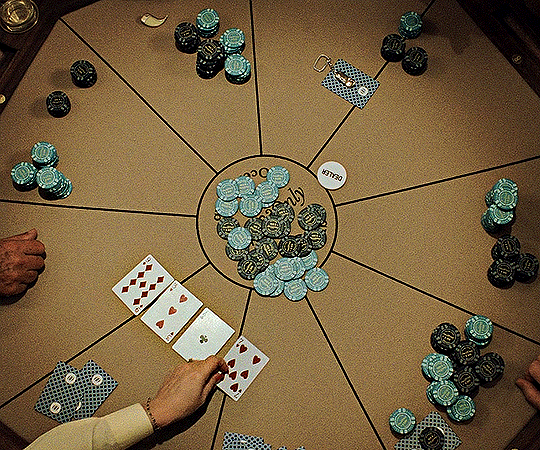






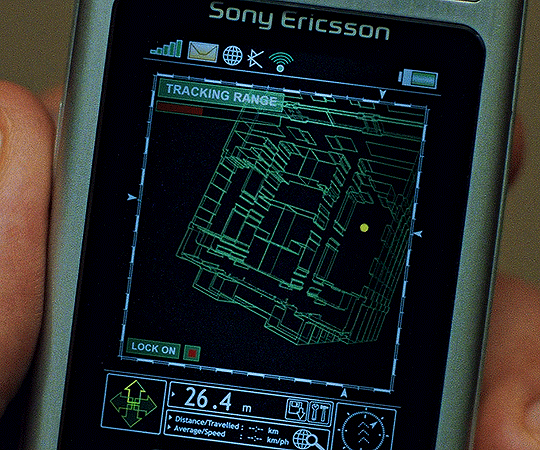
‘My name’s Felix Leiter,’ said the American. ‘Glad to meet you.’ ‘Mine’s Bond — James Bond.’
CASINO ROYALE (2006)
dir. Martin Campbell, adapted from the novel Casino Royale by Ian Fleming
#filmgifs#moviegifs#fyeahmovies#cinemapix#userstream#userbbelcher#chewieblog#userfilm#userbells#usersamanne#userclayy#userkraina#userteri#underbetelgeuse#userkd#casino royale#author: ian fleming#ours#by airam
696 notes
·
View notes
Text
BBC acquires new Australian crime thriller Scrublands
The four-part series is coming to BBC Four and BBC iPlayer.

Martin Scarsden (Luke Arnold) in Scrublands (Image: Easy Tiger)
With its enigmatic central protagonist and atmospheric depiction of rural Australia, the compelling and complex narrative of Scrublands will keep BBC viewers guessing until the very end…
— Sue Deeks, Head of BBC Programme Acquisition
The BBC has acquired new Australian crime drama Scrublands, based on the award-winning novel written by Chris Hammer, for BBC Four and BBC iPlayer.
The four-part series from Australian production company Easy Tiger (Colin from Accounts, The Twelve) stars Luke Arnold (Black Sails, Never Tear Us Apart: The Untold Story of INXS), Jay Ryan (It Chapter Two, Top of the Lake) and Bella Heathcote (CAUGH*T, Relic).
Scrublands is set in an isolated country town, where a charismatic and dedicated young priest (Jay Ryan) calmly opens fire on his congregation, killing five parishioners. One year later investigative journalist Martin Scarsden (Luke Arnold) arrives in Riversend to write what should be a simple feature story on the anniversary of the tragedy. But when Martin's instincts kick in and he digs beneath the surface, the previously accepted narrative begins to fall apart and he finds himself in a life and death race to uncover the truth.
The cast also includes Robert Taylor (The Newsreader), Adam Zwar (Squinters), Zane Ciarma (Neighbours), Victoria Thaine (Nowhere Boys), Stacy Clausen (True Spirit), Genevieve Morris (No Activity) and newcomer Ella Ferris.
Sue Deeks, Head of BBC Programme Acquisition, says: "With its enigmatic central protagonist and atmospheric depiction of rural Australia, the compelling and complex narrative of Scrublands will keep BBC viewers guessing until the very end…"
Scrublands (4 x 50) was acquired by the BBC from Abacus Media Rights who have international distribution rights for the series. It was produced by Easy Tiger for Stan Australia and the Nine Network. Produced by Ian Collie, Rob Gibson, David Redman and Felicity Packard, the series is directed by Greg McLean and written by Felicity Packard, Kelsey Munro and Jock Serong.
EH2 (source: BBC)
18 notes
·
View notes
Text

The novelist Christopher Priest, who has died aged 80 after suffering from cancer, became eminent more than once over the nearly 60 years of his active working life. But while he relished success, he displayed a wry reserve about the ambiguities attending these moments in the limelight.
In 1983 he was included in the Granta Best of Young British Novelists, a 20-strong cohort, most of them – such as Martin Amis, William Boyd, Kazuo Ishiguro, Ian McEwan, Salman Rushdie, Graham Swift and AN Wilson – significantly younger than Priest, whose career had begun almost two decades earlier, and who had at least 15 books and 50 stories in print by the early 80s. He clearly felt that it was not so much the quality of his work that delayed his “promotion” to the literary establishment, but his reluctance to deny, when asked, that he wrote science fiction.
His large body of work never fitted easily into any mould. Only in recent years has it become widely understood that the sometimes baffling ingenuity and thrust of his fiction has been of a piece, no more detachable into convenient genres than, say, Amis’s or Ishiguro’s tales of the fantastic.
Like them, he wove visions of Britain drifting into a post-empire future without secure signposts. Those stories, and the characters he let loose without a paddle, sink and dodge into realities that no longer count. Lacking much in the way of science-fiction gear, even his early work seems to describe the point that we have now arrived at.
His first novel, Indoctrinaire (1970), jaggedly initiates that scrutiny of a near-future, self-hallucinated Britain that terminated only with his last novel, Airside (2023). His next, much more mature, tale, Fugue for a Darkening Island (1972), is the first of several to envision Britain as islanded both literally and in terms of the traumatic solitude endured by those who live in it. It depicts a land devastatingly isolated by ecological collapse, threatened by uncontrollable waves of the world’s dispossessed. The tale is broken into 69 sections (or islands) in no chronological order.
Inverted World (1974), a brilliantly realised study in how perception can transform a world, and The Space Machine: A Scientific Romance (1976), a wry but genuine homage to HG Wells, step away from his central focus. But in A Dream of Wessex (1977), in some stories from An Infinite Summer (1979), and in a further novel, The Affirmation (1981), he created what he came to call The Dream Archipelago, a sequence of tales set in a variety of similar Britains, all transfigured into differing landscape-dominated worlds, sometimes enjoying a Mediterranean climate, each individual tale following paths into watery labyrinths.
The influence of Richard Jefferies’ After London: Or, Wild England (1885) is clear. The protagonist of The Glamour (1984) is so islanded from reality that he becomes literally invisible.
Born in Cheadle, Cheshire (now Greater Manchester), Christopher was the son of Millicent (nee Haslock) and Walter Priest, a senior executive in the firm of Vandome and Hart, manufacturers of weighing machines. On leaving Cheadle Hulme school at the age of 16, he became an accountancy clerk, work that he was able to leave in 1968. Much later he published the stories he wrote from this period as Ersatz Wines (2008).
The first significant hint of a way forward into his mature vision seems to have come through reading Brian Aldiss’s Non-Stop (1958), a tale whose disruptive questioning of science-fiction conventions borrowed from the US, married to a loud pessimism about humanity’s hopes of dominating any future world, was electrifying.
The boisterous Aldiss soon introduced him to the small but intense literary world in Notting Hill Gate, west London, that Michael Moorcock was beginning to create in the early 60s through the magazine New Worlds.
In an early piece, Priest himself first applied the term New Wave to the experimental fantastic narratives of this era, but was ambivalent about how much he wanted to identify with what he found in New Worlds. He gave up clerical work, began to write full-time, and in 1969 married Christine Merchant. They moved to London and divorced after four years.
The New Worlds/New Wave vision of a world that had lost all sense of itself, with no stories to show a way out, was inspiring: but from the beginning Priest recognised the central influence and mentoring genius of JG Ballard, who made hypnotic stories out of the seemingly unstoryable, for his uncanny intuition that past, present and future were an “inner space” we must explore and live with.
Though his works are formally more ingenious, everything Priest wrote acknowledges his mentor’s foreknowledge that we now live in that inner space, where the lighting is treacherous. His last book, not quite completed at the time of his death, is a study of Ballard.
After the US author Harlan Ellison withdrew one of Priest’s stories from his indefinitely postponed blockbuster anthology Last Dangerous Visions, Priest published The Last Deadloss Visions (1987). It was a ruthless documentation of Ellison’s failure to release this volume, while retaining at least 100 stories, some from as early as 1972, and all the while promising immediate publication (when Ellison died in 2018, the anthology was still in manuscript). Priest treated the vituperation from Ellison’s followers as an inevitable consequence of his honesty, but shrugged it off. Others in the US respected him for speaking out.
In 1981, Priest married Lisa Tuttle; they divorced in 1987. The following year he married the writer Leigh Kennedy, and they had two children, Elizabeth and Simon.
His novel The Prestige (1995), about two feuding 19th-century magicians, won both the James Tait Black Memorial prize and a World Fantasy award. The successful film adaptation by Christopher Nolan (2006) starred Hugh Jackman and Christian Bale as the illusionists sparring over a teleportation stunt.
Responding to this new upsurge in his reputation, Priest wrote about the experience in The Magic: The Story of a Film (2008). Meanwhile, The Separation (2002), a dark alternate history of the second world war featuring Rudolf Hess and Winston Churchill, won an Arthur C Clarke award.
He and Kennedy divorced in 2011, and he and the writer Nina Allan began to live together, soon moving to the Isle of Bute. They married in 2023.
His remaining years were prolific. The Islanders (2011) was soon followed by three further and summatory Dream Archipelago tales. An American Story (2018) takes a contrarian view of the assassination of JF Kennedy. Expect Me Tomorrow (2022) plays an intricate game involving doppelgangers, geology and climate change.
His last novel, Airside, conveys with eerie aplomb the seemingly simple tale of a Hollywood star who escapes the potential wreck of her career by travelling through something like an escape-hatch housed in the Heathrow “airside”: an Escherian space, neither here nor there, that any traveller must somehow traverse without becoming abandoned.
The French director Chris Marker’s most famous film, 200 stills comprising the 20-minute La Jetée (1962), which Priest cites in this novel, is partially set in an airside where past and future intersect. The sadness of that intersection is fathoms deep, serenely knowing. The voiceover for that film, and the narrator of Airside, speak to us in the same tone of voice: a tone that seems to grasp the future in hindsight.
At the end of his career, Priest had finally brought off his greatest trick: to bring us home to where he awaited us.
In his written work, he could be acerbic and taxing (though usually persuasive). My own friendship with him, which deepened over half a century, revealed an urgently kind man, witty, loyal, amused, gregarious. He had the rare gift of taking himself fully as seriously as he warranted: but no more. His laughter was infectious.
He is survived by Nina and his children.
🔔 Christopher Mackenzie Priest, author, born 14 July 1943; died 2 February 2024
Daily inspiration. Discover more photos at Just for Books…?
6 notes
·
View notes
Text
Moonbriar - visual fantasy novel
Today suddenly a very kind sir named Christopher Tester "sold" a game to me. =D It all started with his tweet talking about his works with another kind sir, Will de Renzy-Martin.
He mentioned "duelling rabbits" which caught my interest and it turned out they play roles in the upcoming game Moonbriar (link to a Steam page). Since I have a weakness towards beautiful male voices and bunnies/hares, it was an instant sell for me. =D
I played the demo version a bit and, surprise, I heard two more familiar voices: Ralph Ineson (Cid in Final Fantasy 16) and Ian Russell (our dear Senechal Abelard in WH40k Rogue Trader). I am so curious who else I will hear. The art design is also very beautiful.
Here's a short video from the game.
youtube
4 notes
·
View notes
Photo
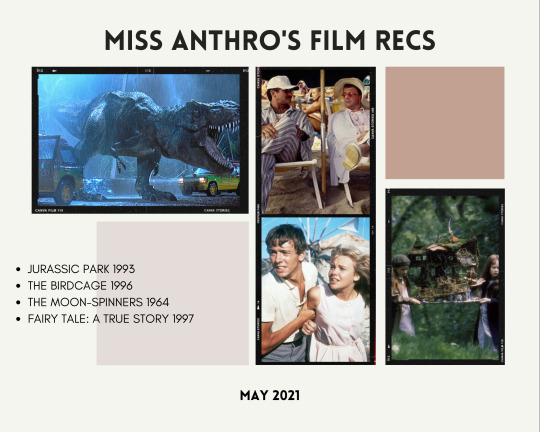
miss anthro’s film recs: May 2021
Jurassic Park 1993: Watched this for the third time in a month today to celebrate it's release 28 years ago. Like most excellent films, it was created by a lucky intersection of talent. The remarkable premise was crafted into a brilliant script by David Koepp and author Michael Crichton; it was tight, clean, fast-paced - no plot holes and unnecessary scenes. Steven Spielberg really did a fantastic job of making a cohesive production and giving it a kind of emotional continuity. The cast is outstanding. I could write an essay about each one. Richard Attenborough brings pathos to John Hammond, the delusional tycoon. Sam Neill is perfect as Alan Grant, a jaded paleontologist who finds deeper compassion. Laura Dern gives a raw performance as the resolute and charming paleo-botanist Ellie Sattler. Jeff Goldblum stars as Ian Malcolm, chaotician and prototype "rock-star scientist." Bob Peck is wonderful as the sensible game warden Robert Muldoon. Samuel L. Jackson works his magic as sardonic chief engineer Ray Arnold. And of course, excellent performances from Martin Ferrero, Wayne Knight, Joseph Mazzello, and Ariana Richards. The special and physical effects are remarkable and most of them remain so nearly three decades later, including the life-sized animatronic Tyrannosaurus rex and just the right amount of CGI. Cinematography by Dean Cundey features god-tier-level use of scale framing. Not to mention great use of color, blocking, sound, costume, John Williams' beautiful score - you name it, this film really has everything going for it. Is this a perfect film? No, but it gets bloody close. Unmissable science-fiction that examines the horror unleashed by the arrogance of mankind.
The Birdcage 1996: This 25* year old film is a real gem. While the modern viewer (myself included) could find fault with some stereotypes, etc., the classic comedy has aged quite well. There’s a lot of slapstick and hysterically funny and clever dialogue. Williams and Lane are outstanding. There’s a very touching scene between the two of them which is very romantic and sweet. And of course the whole cast is perfect. I’m always impressed by this film when I haven’t seen it in a while.
The Moon-Spinners 1964: You don’t need to be a Disney fan to love this incredible classic. Hayley Mills is well loved but I don’t think she’s given enough credit for being not only a brilliant child actor but also a great actor as she aged. Her performance is stellar. The whole movie is fun and tense, bringing Mary Stewart’s novel to life in the great and beautiful country of Greece. It’s a fun adventure from start to finish with humor and romance.
Fairytale: A True Story 1997: Want to cry your eyes out about the Cottingley fairy hoax of 1917? You may not trust me but I recommend this experience. Honestly, this movie is life-changing. This is a depiction of a real life story involving historical figures. Usually no one gets that quite right but this movie kinda does. Peter O’Toole looks nothing like Sir Arthur Conan Doyle, but Harvey Keitel looks remarkably like Harry Houdini. Something about the music and what they do with this story gets into your bloodstream. I couldn’t possibly spoil for anyone who knows nothing about it, but I can say that there is some incredible CGI and a scene where someone faces retribution from an unexpected and shocking source.
edit 2023:
*now 27
I found this in my drafts. Clearly, life got in the way and I didn’t continue my recommendation posts (I have the templates drafted in text form.) Also, while drafting this edit I was attacked by a small beetle. I remain unharmed and have released the beetle into its natural environment.
#missanthrofilmrecs#jurassic park#the birdcage#the moon spinners#fairytale a true story#movies#movie reviews
22 notes
·
View notes
Note
Black Libary Writer Ranking?
I'm notoriously bad at remembering names, so I really only remember authors who either excite me a lot or completely horrify me. So it's probably not really a ranking!
My favourite author is (who would have guessed!) Josh Reynolds. He manages to fill action sequences with life just as much as he fleshes out his characters and brings in the most interesting supporting characters, all of whom are not just background noise but drive the plot and have their own agenda. And by the way, his language is beautiful and a pleasure to read.
Then follow Nick Kyme and Chris Wraight. You can just tell Nick Kyme loves his characters (even if he kills them off a bit too often for my taste!) and is keen not just to churn out a plot, but to bring background and expand the universe.
Chris Wraight is also a fantastic world builder. And, incidentally, someone who tries not to fall into stereotypes too often. And someone else whose language I really like and who takes the trouble to bring in a lot of background.
I like Abnett occasionally. He's written the best versions of Lucius and Saul, and his "Know No Fear" is my benchmark for disaster movies. Uhh … disaster books? He can do timing and he can do action. What he can't do for a nickel is female characters. Every one of his women is "not like the other girls" at its purest. And the fact that in every one of his stories humans have to be given a supporting (yeah, most times even main) plot line, even if the novel is about Space Marines or Primarchs, is absolutely not my thing.
Ian St. Martin has delivered solid entertainment with the 40k Lucius stories and the infamous landmine short story made me laugh a lot. For the most part, I really liked the side characters he served up. Can and should certainly write more about the Emperor's Children. At least when he hits the brakes a bit on the Slaanesh stuff.
Aaron Dembski-Bowden is a very solid author as well. I love how he dives into his characters and tries to bring out the best and most interesting sides in them. At least with the canon-characters. His OCs tend to be very similar and I'm not that into troubled emo-boys. 😁
Honourable mention for John French, I quite liked "Slaves to Darkness".
I think Guy Haley is okay. No particular thoughts on that. So how he handles the Fabius/Cawl book will be a key experience for me as far as he is concerned.
Anthony Reynolds, the author of the Word Bearers 40k books, has undoubtedly made an effort and Burias, Marduk and Kol Badar are also quite great characters - but unfortunately he can't really write a story. He has a pattern and he follows it in every book. In every one.
Not quite the big hit for me is Steve Parker. I love Kill Team Talon. These guys are entertaining and have a fantastic dynamic. Great fun to read and I'd like all the books to be about them too. Unfortunately they aren't. Instead you get over half the pages of boring inquisition plot and misogynist crap of the highest order. Unnecessary. Could be so nice! (Almost as bad as McNeill's famous bouncing boobies. And ten times more "not like the other girls" than Abnett).
Please Kill Team Talon by another author! I like them too much.
Who's at the bottom of my list is probably well known, and I've already explained in detail why I need a restraining order for McNeill to stop him writing anything for the Emperor's Children.
I've now probably forgotten about ten authors or so that I also have an opinion on. But I can add them when I get a chance!

13 notes
·
View notes
Text
By: David Remnick
Date: Feb 6, 2023
Note: this is a very long article, so I won't post it in full, but I wanted to share some excerpts.
[..]
In Tehran, Ayatollah Khomeini was ailing and in crisis. After eight years of war with Iraq and hundreds of thousands of casualties, he had been forced to drink from the “poisoned chalice,” as he put it, and accept a ceasefire with Saddam Hussein. The popularity of the revolutionary regime had declined. Khomeini’s son admitted that his father never read “The Satanic Verses,” but the mullahs around him saw an opportunity to reassert the Ayatollah’s authority at home and to expand it abroad, even beyond the reach of his Shia followers. Khomeini issued the fatwa calling for Rushdie’s execution. As Kenan Malik writes in “From Fatwa to Jihad,” the edict “was a sign of weakness rather than of strength,” a matter more of politics than of theology.
A reporter from the BBC called Rushdie at home and said, “How does it feel to know that you have just been sentenced to death by the Ayatollah Khomeini?”
Rushdie thought, I’m a dead man. That’s it. One day. Two days. For the rest of his life, he would no longer be merely a storyteller; he would be a story, a controversy, an affair.
After speaking with a few more reporters, Rushdie went to a memorial service for his close friend Bruce Chatwin. Many of his friends were there. Some expressed concern, others tried consolation via wisecrack. “Next week we’ll be back here for you!” Paul Theroux said. In those early days, Theroux recalled in a letter to Rushdie, he thought the fatwa was “a very bad joke, a bit like Papa Doc Duvalier putting a voodoo curse on Graham Greene for writing ‘The Comedians.’ ” After the service, Martin Amis picked up a newspaper that carried the headline “execute rushdie orders the ayatollah.” Rushdie, Amis thought, had now “vanished into the front page.”
For the next decade, Rushdie lived underground, guarded by officers of the Special Branch, a unit of London’s Metropolitan Police. The headlines and the threats were unceasing. People behaved well. People behaved disgracefully. There were friends of great constancy—Buford, Amis, James Fenton, Ian McEwan, Nigella Lawson, Christopher Hitchens, many more—and yet some regarded the fatwa as a problem Rushdie had brought on himself. Prince Charles made his antipathy clear at a dinner party that Amis attended: What should you expect if you insult people’s deepest convictions? John le Carré instructed Rushdie to withdraw his book “until a calmer time has come.” Roald Dahl branded him a “dangerous opportunist” who “knew exactly what he was doing and cannot plead otherwise.” The singer-songwriter Cat Stevens, who had a hit with “Peace Train” and converted to Islam, said, “The Quran makes it clear—if someone defames the Prophet, then he must die.” Germaine Greer, George Steiner, and Auberon Waugh all expressed their disapproval. So did Jimmy Carter, the British Foreign Secretary, and the Archbishop of Canterbury.
Among his detractors, an image hardened of a Rushdie who was dismissive of Muslim sensitivities and, above all, ungrateful for the expensive protection the government was providing him. The historian Hugh Trevor-Roper remarked, “I would not shed a tear if some British Muslims, deploring his manners, should waylay him in a dark street and seek to improve them. If that should cause him thereafter to control his pen, society would benefit, and literature would not suffer.”
The horror was that, thanks to Khomeini’s cruel edict, so many people did suffer. In separate incidents, Hitoshi Igarashi, the novel’s Japanese translator, and Ettore Capriolo, its Italian translator, were stabbed, Igarashi fatally; the book’s Norwegian publisher, William Nygaard, was fortunate to survive being shot multiple times. Bookshops from London to Berkeley were firebombed. Meanwhile, the Swedish Academy, the organization in Stockholm that awards the annual Nobel Prize in Literature, declined to issue a statement in support of Rushdie. This was a silence that went unbroken for decades.
[..]
Since 1989, Rushdie has had to shut out not only the threats to his person but the constant dissections of his character, in the press and beyond. “There was a moment when there was a ‘me’ floating around that had been invented to show what a bad person I was,” he said. “ ‘Evil.’ ‘Arrogant.’ ‘Terrible writer.’ ‘Nobody would’ve read him if there hadn’t been an attack against his book.’ Et cetera. I’ve had to fight back against that false self. My mother used to say that her way of dealing with unhappiness was to forget it. She said, ‘Some people have a memory. I have a forget-ory.’ ”
Rushdie went on, “I just thought, There are various ways in which this event can destroy me as an artist.” He could refrain from writing altogether. He could write “revenge books” that would make him a creature of circumstances. Or he could write “scared books,” novels that “shy away from things, because you worry about how people will react to them.” But he didn’t want the fatwa to become a determining event in his literary trajectory: “If somebody arrives from another planet who has never heard of anything that happened to me, and just has the books on the shelf and reads them chronologically, I don’t think that alien would think, Something terrible happened to this writer in 1989. The books go on their own journey. And that was really an act of will.”
Some people in Rushdie’s circle and beyond are convinced that, in the intervening decades, self-censorship, a fear of giving offense, has too often become the order of the day. His friend Hanif Kureishi has said, “Nobody would have the balls today to write ‘The Satanic Verses,’ let alone publish it.”
[..]
Rushdie was hospitalized for six weeks. In the months since his release, he has mostly stayed home save for trips to doctors, sometimes two or three a day. He’d lived without security for more than two decades. Now he’s had to rethink that.
Just before Christmas, on a cold and rainy morning, I arrived at the midtown office of Andrew Wylie, Rushdie’s literary agent, where we’d arranged to meet. After a while, I heard the door to the agency open. Rushdie, in an accent that bears traces of all his cities—Bombay, London, New York—was greeting agents and assistants, people he had not seen in many months. The sight of him making his way down the hall was startling: He has lost more than forty pounds since the stabbing. The right lens of his eyeglasses is blacked over. The attack left him blind in that eye, and he now usually reads with an iPad so that he can adjust the light and the size of the type. There is scar tissue on the right side of his face. He speaks as fluently as ever, but his lower lip droops on one side. The ulnar nerve in his left hand was badly damaged.
Rushdie took off his coat and settled into a chair across from his agent’s desk. I asked how his spirits were.
“Well, you know, I’ve been better,” he said dryly. “But, considering what happened, I’m not so bad. As you can see, the big injuries are healed, essentially. I have feeling in my thumb and index finger and in the bottom half of the palm. I’m doing a lot of hand therapy, and I’m told that I’m doing very well.”
“Can you type?”
“Not very well, because of the lack of feeling in the fingertips of these fingers.”
What about writing?
“I just write more slowly. But I’m getting there.”
Sleeping has not always been easy. “There have been nightmares—not exactly the incident, but just frightening. Those seem to be diminishing. I’m fine. I’m able to get up and walk around. When I say I’m fine, I mean, there’s bits of my body that need constant checkups. It was a colossal attack.”
More than once, Rushdie looked around the office and smiled. “It’s great to be back,” he said. “It’s someplace which is not a hospital, which is mostly where I’ve been to. And to be in this agency is—I’ve been coming here for decades, and it’s a very familiar space to me. And to be able to come here to talk about literature, talk about books, to talk about this novel, ‘Victory City,’ to be able to talk about the thing that most matters to me . . .”
At this meeting and in subsequent conversations, I sensed conflicting instincts in Rushdie when he replied to questions about his health: there was the instinct to move on—to talk about literary matters, his book, anything but the decades-long fatwa and now the attack—and the instinct to be absolutely frank. “There is such a thing as P.T.S.D., you know,” he said after a while. “I’ve found it very, very difficult to write. I sit down to write, and nothing happens. I write, but it’s a combination of blankness and junk, stuff that I write and that I delete the next day. I’m not out of that forest yet, really.”
He added, “I’ve simply never allowed myself to use the phrase ‘writer’s block.’ Everybody has a moment when there’s nothing in your head. And you think, Oh, well, there’s never going to be anything. One of the things about being seventy-five and having written twenty-one books is that you know that, if you keep at it, something will come.”
Had that happened in the past months?
Rushdie frowned. “Not really. I mean, I’ve tried, but not really.” He was only lately “just beginning to feel the return of the juices.”
How to go on living after thinking you had emerged from years of threat, denunciation, and mortal danger? And now how to recover from an attack that came within millimetres of killing you, and try to live, somehow, as if it could never recur?
He seemed grateful for a therapist he had seen since before the attack, a therapist “who has a lot of work to do. He knows me and he’s very helpful, and I just talk things through.”
The talk was plainly in the service of a long-standing resolution. “I’ve always tried very hard not to adopt the role of a victim,” he said. “Then you’re just sitting there saying, Somebody stuck a knife in me! Poor me. . . . Which I do sometimes think.” He laughed. “It hurts. But what I don’t think is: That’s what I want people reading the book to think. I want them to be captured by the tale, to be carried away.”
Many years ago, he recalled, there were people who seemed to grow tired of his persistent existence. “People didn’t like it. Because I should have died. Now that I’ve almost died, everybody loves me. . . . That was my mistake, back then. Not only did I live but I tried to live well. Bad mistake. Get fifteen stab wounds, much better.”
As he lay in the hospital, Rushdie received countless texts and e-mails sending love, wishing for his recovery. “I was in utter shock,” Chimamanda Ngozi Adichie, the Nigerian novelist, told me. “I just didn’t believe he was still in any real danger. For two days, I kept vigil, sending texts to friends all over the world, searching the Internet to make sure he was still alive.” There was a reading in his honor on the steps of the New York Public Library.
For some writers, the shock brought certain issues into hard focus. “The attack on Salman clarified a lot of things for me,” Ayad Akhtar told me. “I know I have a much brighter line that I draw for myself between the potential harms of speech and the freedom of the imagination. They are incommensurate and shouldn’t be placed in the same paragraph.”
Rushdie was stirred by the tributes that his near-death inspired. “It’s very nice that everybody was so moved by this, you know?” he said. “I had never thought about how people would react if I was assassinated, or almost assassinated.”
And yet, he said, “I’m lucky. What I really want to say is that my main overwhelming feeling is gratitude.” He was grateful to those who showed their support. He was grateful to the doctors, the E.M.T. workers, and the fireman in Chautauqua who stanched his wounds, and he was grateful to the surgeons in Erie. “At some point, I’d like to go back up there and say thank you.” He was also grateful to his two grown sons, Zafar and Milan, who live in London, and to Griffiths. “She kind of took over at a point when I was helpless.” She dealt with the doctors, the police, and the investigators, and with transport from Pennsylvania to New York. “She just took over everything, as well as having the emotional burden of my almost being killed.”
Did he think it had been a mistake to let his guard down since moving to New York? “Well, I’m asking myself that question, and I don’t know the answer to it,” he said. “I did have more than twenty years of life. So, is that a mistake? Also, I wrote a lot of books. ‘The Satanic Verses’ was my fifth published book—my fourth published novel—and this is my twenty-first. So, three-quarters of my life as a writer has happened since the fatwa. In a way, you can’t regret your life.”
Whom does he blame for the attack?
“I blame him,” he said.
[..]
[ Archive: https://archive.is/uiRsY ]
==
I'll state it plainly: Rushdie was betrayed by people who not only should have known better, but did know better.
They took a faux-moralizing position in order to keep themselves out of the firing line. When the bully goes on the rampage, you side with the bully to save your own skin. One of the earliest modern day incarnations of cancel culture, joining the outrage mob so as not to be their target.
That's understandable in a way, but there's a profound cowardice in the people who took such a self-interested defensive posture in the 1980s, who scolded Rushdie and anyone who defended him, and yet still today have not admitted their contributions and collaboration with what happened. I've yet to see any of them admit "I/we got it very wrong."
#Salman Rushdie#The Satanic Verses#freedom of speech#free speech#freedom of expression#artistic integrity#islam#islamic violence#fatwa#religion#religion is a mental illness
18 notes
·
View notes
Text
Rufus' voice, p5
P G Wodehouse Uncle Fred In The Springtime
The novel was adapted as a radio drama by Archie Scottney in 2012 for BBC Radio 4, directed by Martin Jarvis, who also portrayed Lord Emsworth. The cast also included Ian Ogilvy as the narrator, Patricia Hodge as Lady Constance, and Alfred Molina as Uncle Fred
Ricky Gilpin ..... Rufus Sewell

2 notes
·
View notes
Text
Autumn Comfort Movies ✨

Practical Magic (1998)
Based on the novel of the same name, by Alice Hoffman. Starring Sandra Bullock and Nicole Kidman.
Stream on HBO Max
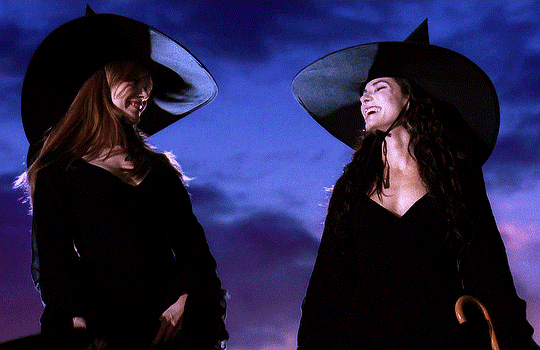
The Hobbit (2012-2014)
Based on the novels by J.R.R. Tolkien. Starring Martin Freeman and Sir Ian McKellen.
Stream on Amazon Prime Video, HBO Max, Vudo, Hulu, and more.
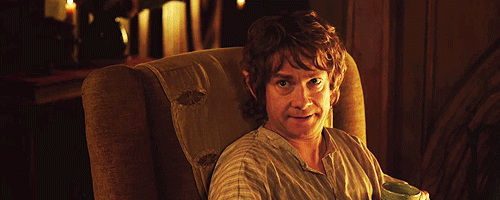
Anne of Green Gables (1985)
Based on the novel by L.M. Montgomery. Starring Megan Follows, Colleen Dewhurst, and Jonathan Crombie.
Stream on GazeboTv.
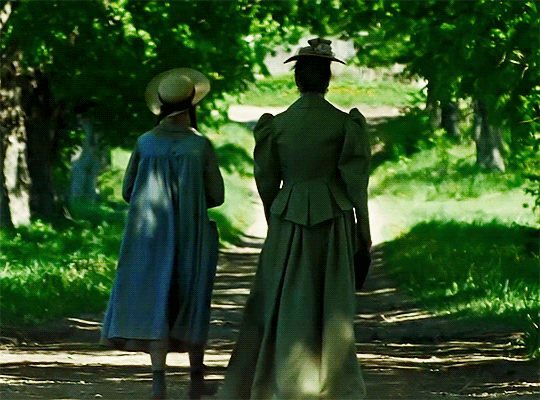
Little Women (1994 & 2019)
Based on the novel by Louisa May Alcott, both adaptations brilliantly bring the 19th Century novel to life.

Matilda (1996)
Based on the book by Roald Dahl. Starring Mara Wilson, Danny DeVito, and Embeth Davidtz.
Stream on Disney+, Hulu, and more.
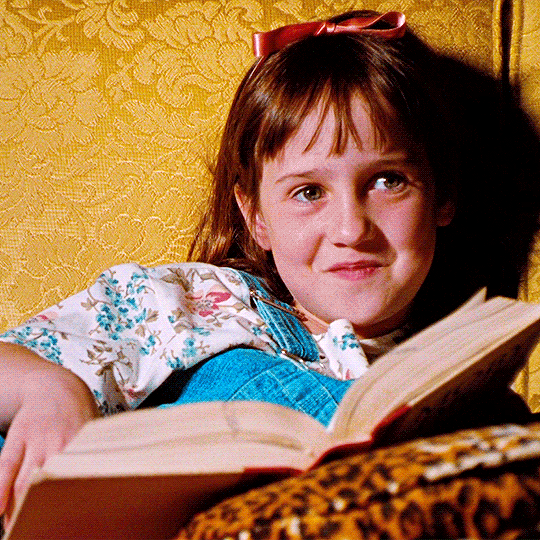
Stardust (2007)
Based on the novel by Neil Gaiman. Starring Claire Danes and Charlie Cox.
Stream on HBO Max.
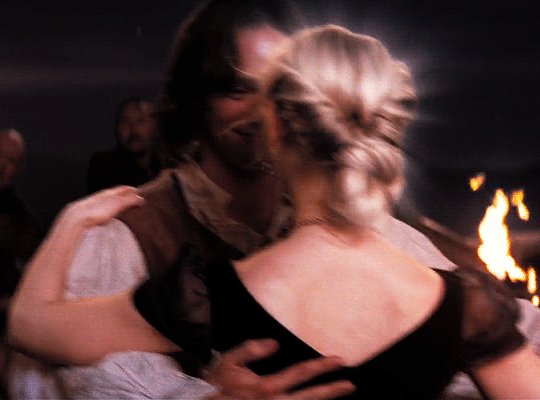
Kiki’s Delivery Service (1989)
Based on the 1985 novel by Eiko Kadono. Great animated film.
Stream on HBO Max.

Coming Soon
→ Halloween & Autumn Comfort Tv series to Binge
→ Halloween Comfort Movies
✨More comfort shows and movie lists coming soon✨
#Halloween#Autumn#Movie List#movie rec list#Fall#Fall movies#Halloween Movies#October#cozy#cozy movies#autumn movies#cozy autumn#cozy fall#practical magic#kiki's delivery service#stardust#matilda#little women#anne of green gables#the hobbit#anne of green gables 1985#movies#warm#fuzzy#halloweenrules#halloween rules#happy halloween#october 3rd#october third#oct 3
43 notes
·
View notes
Text
Inspired by @valiantarcher's January reading update, I feel like doing an update of my own:
The King of Attolia by Megan Whalen Turner. ***** Everything you've heard about the wonderfulness of this book is true. Knocked my socks off.
The Ghosts of Sherwood by Carrie Vaughn. *** It was nice, but didn't progress much beyond nice for me. Perhaps I simply don't read enough novellas, but the appealing concept just seemed underdeveloped plotwise.
Piranesi by Susanna Clarke (reread) ***** Fell in love with this one at Christmas, and had to read it aloud to my brother as a result.
84, Charing Cross Road by Helene Hanff (et al) ***** Wonderfully human, wonderfully literary, wonderfully voicey.
Le Roadtrip by Vivian Swift. *** Divided feelings on this one. Not a spectacular book, but she did know how to marry her travelog with her sketches/watercolours in a lovely way, and she did reignite the travel bug in me. Funny that this book didn't make me long for France - just travel. Perhaps in my head "travel" still just means my incredible trip to Italy in 2016 and my heart doesn't quite believe travel anywhere else outside Canada and the US is possible.
What It Means to Be a Christian by Joseph Ratzinger (later Pope Benedict.) **** A very slim volume I wish were longer. The first section especially pulled no punches and yet was simultaneously so hopeful.
The Perilous Gard by Elizabeth Marie Pope ***** - How was this novel so exactly the kind of story I was hoping for but didn't expect? Every element handled so, so well. Loved the conversation between the Lady and Kate about the price paying, and the relationship between Kate and Christopher, and the excellent way history and folklore were married, and all the ambiguous fairy folk elements, and the sheer style with which the whole thing was carried off.
Still in progress: Shyness and Social Anxiety by Martin M. Antony, The Odyssey by Homer (reread), The Saga of Didrik of Bern, translated by Ian Cumptsey, The Nicholas Nickleby Story by Leon Ruben (reread), The Father's Tale by Michael O'Brien, The Epistles of St. Paul, Night by Elie Weisel
DNF: Saint Teresa of Avila by F. A. Forbes, The Red Palace by June Hur
9 notes
·
View notes
Text



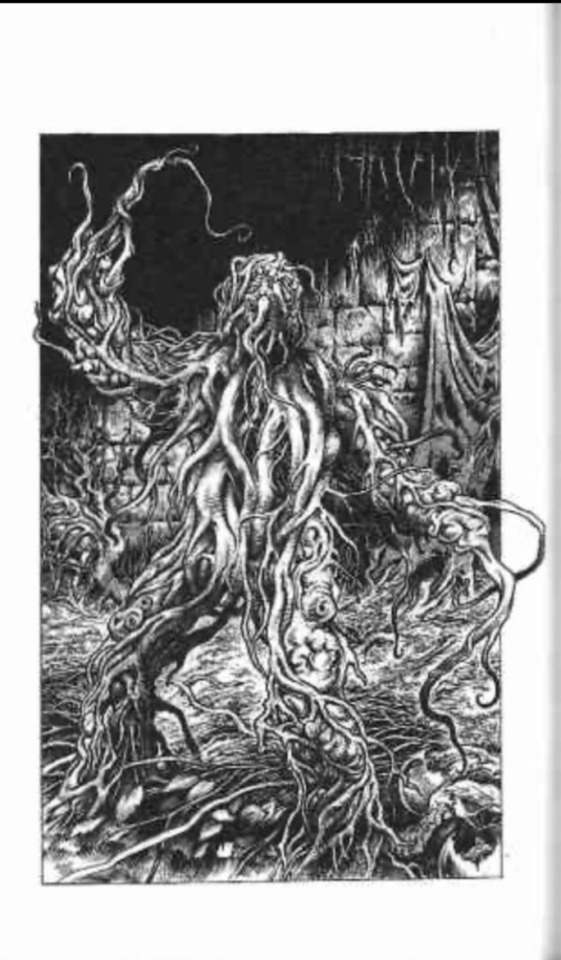

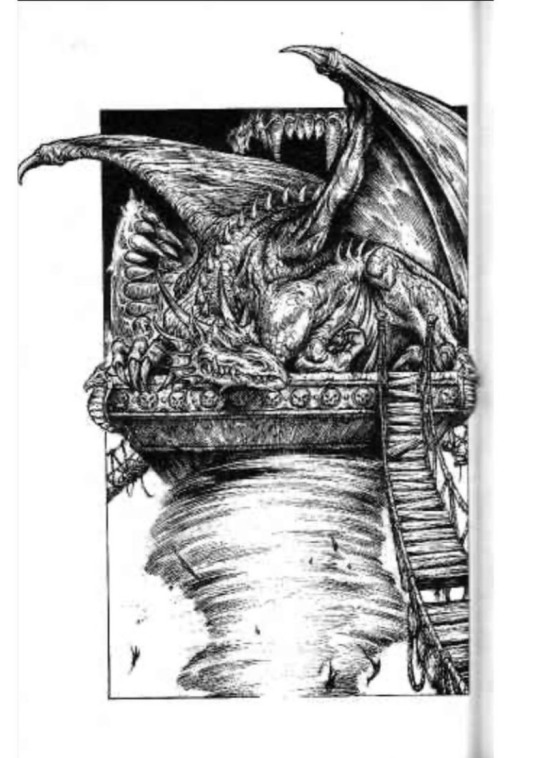




The Legend of Zagor from the Fighting Fantasy game book series, written by Keith Martin, cover by Jim Burns and Martin McKenna with some of the best interior illustrations in the series, by McKenna.
“The evil that will not die! Zagor! The very name of the Warlock of Firetop Mountain strikes terror into all who hear it. Banished from the world of Titan, the sorcerer is slowly but surely regaining his strength. Within Castle Argent, in the kingdom of Amarillia, Zagor has been transformed into a demon.
Such is his power, he must be destroyed. There are several adventurers willing to volunteer – mighty Anvar the barbarian, the warrior Braxus, Stubble the dwarf, Sallazar the wizard – but only one will be chosen. Are YOU that hero?”
This book is a follow-up of previous Fighting Fantasy book Return to Firetop Mountain, which in turn was a sequel to The Warlock of Firetop Mountain.
A series of novels featuring the arrival of Zagor to the land of Amarillia and the battle to defeat him, The Zagor Chronicles, were previously written by Ian Livingstone and Carl Sargent. The heroes that the player can choose from are all characters from the novels, who worked together as a group to destroy Zagor.
.
20 notes
·
View notes
Text
Movie Review | Jurassic Park (Spielberg, 1993)
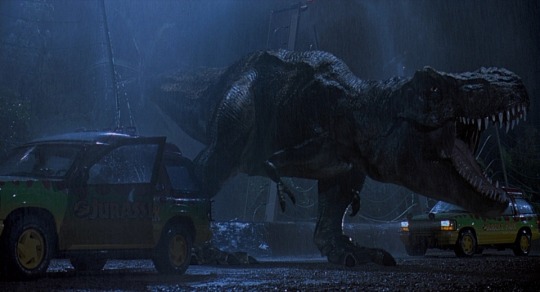
Scattered observations on the 3D re-release:
I don’t remember at what age I first watched the movie, but when I was ten years old, my parents got me the Special Edition VHS (which included a second cassette with extensive making-of features), at which point I proceeded to watch the movie every single day for…at least a few months, quite possibly a year. I don’t rewatch movies with anywhere near the same frequency these days, so it’s safe to say that I’ve seen this more times than any other movie. The point is, I know this movie like the back of my hand, and in particular, certain musical cues elicit a Pavlovian response from me at this point. And by certain, I mean pretty much all the significant ones, and seeing this for the first time in a theatre, with the John Williams score booming through the sound system, I had chills going down my spine for practically the entire runtime. Okay, maybe the air conditioner played a part too.
This is being re-released into select theatres for its thirtieth anniversary in a 3D version that I believe was actually made a decade ago for its twentieth anniversary. The 3D has obvious benefits for the many scenes of spectacle (all of which are iconic), in particular because Spielberg’s blocking and shot compositions here stress the sense of depth and perspective. (For an obvious example, go to the first T-Rex attack and note how often we look over a character’s shoulder or through a window or have anything in the foreground for scale.) But the visual strategy is so consistent throughout the movie that it bears unexpected benefits in the dialogue scenes. Take the scene where Hammond is talking to the scientists and Ian Malcolm is dropping some cold, hard truths about the folly of man in bending nature to his will. It seems a little more profound with the extra dimension. (On a side note, I guess I took it for granted just how quotable this movie is. “When you gotta go, you gotta go.” “Hold on to your butts.” Etc, etc. The only bad bit of dialogue was Ellie Sattler’s speech about taking power for granted, which shouldn’t have passed the first draft.) Also take the scene where the characters interrupt their tour to go see the triceratops. The big pile of shit is even bigger in 3D. Thankfully the movie wasn’t released in smell-o-vision.
Like a lot of people, I went through a Michael Crichton phase in my teens, and I remember the source novel being one of his better books. But while Crichton is skilled at crafting technobabble-infused page-turners, Spielberg solutions pretty effectively for his shortcomings at character development. Most notably, Ian Malcolm in the book is a know-it-all who has the right opinion 100% of the time and also happens to agree with Crichton on every key issue. This probably holds true with the movie as well, but by casting Jeff Goldblum, the character is allowed to be twitchy, off-putting and alive in ways he isn’t in the novel. (As Hammond remarks, "I really hate that man." He's also allowed to be sexy, as anyone who remembers the scene in the emergency bunker where he has his shirt open can attest.) The same goes for the rest of the characters, who are played by a murderer’s row of character actors. I could just rattle off the entire cast list, but a few choices Spielberg makes I found particularly astute include making Alan Grant initially annoyed by children so that he gets something of an arc, combining the treacherous Ed Regis and the lawyer Donald Gennaro into just the latter and allowing Martin Ferrero to put his comedic talents to use. I also understand that Wayne Knight was cast after Spielberg saw him in Basic Instinct, where he used some of the same tics of nervous muttering, profuse sweating and looking down through his classes in a particular way that he repurposes here with more sinister intent. He also has some of that disgruntled quality from his role in Seinfeld. This is probably the best casting choice in the movie. (On a side note, the further I get in my career, the more relatable Dennis Nedry becomes, and the more common skimping on IT spend seems to be a problem. “Don't get cheap on me, Dodgson. That was Hammond's mistake.”)
The most drastic change in characterization is probably turning Hammond from a POS to a kindly old man. Crichton plays him too obviously as a villain, and certain Richard Attenborough could have pulled that off, but I think Spielberg turning him into a more sympathetic figure complicates the material interestingly. I think as something of a mogul himself, Spielberg identifies readily with Hammond’s motivations, and is willing to seek the beauty in these possibilities and present us with images that might take our breath away. (Exhibit A: The first shot of the brontosauruses, built up with reaction shots, then making great use of the height of the frame and the silhouettes of the actors in the foreground before giving us a complete view.) He wants the park to succeed, even if in the back of his head he knows it will fail. To paraphrase a quote about Samuel Fuller, when it comes to dinosaur parks, only the point of view of someone who has been tempted is of any interest. (Compare this to Jurassic World, where the dinosaurs are readily dismissed with ironic distance, and you’ll see what the difference in worldview offers in basic spectacle.) Spielberg is also technophilic when it comes to capturing computer displays, indicator lights and the like, all captured lovingly while being milked for tension.
Obviously, seeing this in a theatre helped me to really soak in the set pieces, but as I’ve seen this movie like a hundred times (and quite possible more), this time around I really took note of the timing. There’s the scene where Nedry steals the embryos, which feels like something out of Mission: Impossible. (I know these guys all watch each other’s movies, and I wonder if De Palma pulled a little bit from this scene.) And a particularly strong sequence juggles Muldoon hunting the raptors with Sattler trying to turn the power back on with Hammond and Malcolm’s guidance and Grant and the kids trying to get over the giant fence. It would be one thing if it was played all relentlessly, but I love the way the movie lets you grasp the relationships between the different lines of action entirely visually (the camera panning down the switches a little faster than Sattler flips them) and occasionally lulls you into a false sense of security (Grant having a goof with the kids before they begin their climb). Just a masterclass in editing. This Spielberg guy is a pretty good director, huh?
I’ve seen this movie countless times but this was my first time seeing it in a theatre, and guess what? It’s still great.
#film#movie review#jurassic park#steven spielberg#🦖#dino droppings? droppings?#if pirates of the caribbean breaks down#the pirates don't eat the tourists#we can discuss sexism in survival situations when i get back#nedry was right#nedry died for our sins#congratulations you've reached the end of the tags#see here i'm now sitting by myself talking to myself#that's chaos theory
4 notes
·
View notes
Text
Luke Arnold, Bella Heathcote and Jay Ryan to star in new Stan Series Scrublands as the explosive trailer is released
A star-studded cast are preparing to bring a gripping crime novel to life on Stan.
Luke Arnold (Black Sails, Never Tear Us Apart: The Untold Story of INXS), Bella Heathcote (Stan Original Series CAUGH*T, Stan Original Film Relic) and Jay Ryan (It Chapter Two, Top of the Lake) will star in the brand new Stan Original Series Scrublands.
The Stan Original Series Scrublands premieres November 16, all episodes at once and only on Stan.
The TV adaptation is based on the best-selling novel written by Chris Hammer, and you can watch the first trailer in the video above.
We don't have long to wait, as the series will be released in full on November 16 on Stan.
Scrublands is set in an isolated country town, where a charismatic and dedicated young priest (Ryan) calmly opens fire on his congregation, killing five parishioners.

Martin Scarsden (Luke Arnold) and Jane Gibson (Eliza Matengu) arrive in Riversend. (Stan)
One year later investigative journalist Martin Scarsden (Arnold) arrives in Riversend to write what should be a simple feature story on the anniversary of the tragedy.
But when Martin's instincts kick in and he digs beneath the surface, the previously accepted narrative begins to fall apart and he finds himself in a life and death race to uncover the truth.
Joining Arnold, Ryan, and Heathcote in the cast are Zane Ciarma (Neighbours), Adam Zwar (Squinters), Victoria Thaine (Nowhere Boys), Robert Taylor (The Newsreader), Stacy Clausen (True Spirit), Genevieve Morris (Stan Original Series No Activity) and newcomer Ella Ferris.
The series is an Easy Tiger production co-commissioned by Stan and the 9Network, in association with VicScreen.
Easy Tiger Founder Ian Collie and CEO Rob Gibson said they immediately saw the potential in turning the novel into a gripping series.
"From the moment we opened Chris Hammer's ripping page-turner, we knew Scrublands was destined to be a must-watch crime series," they said.
"We're delighted that our partners at Stan and Nine agree wholeheartedly, and we're thrilled to work with the incredible team there to bring this to the screen, with the crucial support of VicScreen and international partners Abacus.
"In the masterful hands of director Greg McLean, writer/producer Felicity Packard and writers Kelsey Munro and Jock Serong, and producer David Redman, Scrublands will be an unmissable TV event for rusted-on Chris Hammer fans and everyone else alike."
Scrublands marks the second co-commission between 9Network and Stan following the Stan Original Series Bali 2002, an inspiring drama exploring how everyday heroes from Bali, Australia and beyond defied the odds to bring order from chaos and hope from despair.
Stan Chief Content Officer Cailah Scobie promised the new thrilled would be both "powerful and compulsive".
She said of the new series: "Following the immense success of Bali 2002, Stan is delighted to once again co-commission with the 9Network.
"A remarkable crime series set in Australia's unforgiving and harsh landscape, Easy Tiger has secured an outstanding core cast in Luke Arnold, Bella Heathcote and Jay Ryan and we look forward to collaborating with them on Scrublands."
The Stan Original Series Scrublands is directed by Greg McLean, written by Felicity Packard, Kelsey Munro and Jock Serong, produced by Ian Collie, Rob Gibson, David Redman, Felicity Packard with Executive Producers Michael Healy and Andy Ryan from the 9Network and Cailah Scobie and Amanda Duthie for Stan.
The Stan Original Series Scrublands premieres November 16, all episodes at once and only on Stan.
Source: Nine Australia
7 notes
·
View notes
Text
2022 in books
january:
the architecture of happiness by alain de bottom
an american marriage by tayari jones
filter house by nisi shawl
february:
the metamorphosis by franz kafka
the worst best man by mia sosa
the hating game by sally throne
utopia avenue by david mitchell
march:
people we meet on vacation by emily henry
it happened one summer by tessa bailey
hook, line, and sinker by tessa bailey
the unhoneymooners by christina lauren
the spanish love deception by elena armas
minor detail by adania shibli
get a life, chloe brown by talia hibbert
take a hint, dani brown by talia hibbert
act your age, eve brown by talia hibbert
born to run by bruce springsteen
homesick for another world by ottessa moshfegh
the kiss quotient by helen hoang
the love hypothesis by ali hazelwood
boy parts by eliza clark
fix her up by tessa bailey
before the coffee gets cold by toshikazu kawaguchi
april:
tools of engagement by tessa bailey
nausea by jean-paul sartre
the fine print by lauren asher
the brothers karamazov by fyodor dostoevsky
happy hour by marlowe granados
love and other words by christine lauren
may:
fear and loathing in las vegas by hunter s. thompson
lolita by vladimir nabokov
june:
atonement by ian mcewan
an enchantment of ravens by margaret rogerson
six of crows by leigh bardugo
house of earth and blood by sarah j. maas
house of sky and breath by sarah j. maas
breakfast at tiffany’s & other voices, other rooms: two novels by truman capote
bunny by mona awad
when he was wicked by julia quinn
rebecca by daphne du maurier
fight club by chuck palahtniuk
july:
yolk by mary h.k. choi
milk fed by melissa broder
junky by william s. burroughs
in the dream house by carmen maria machado
august:
breakfast of champions by kurt vonnegut jr
animal by lisa taddeo
one last stop by casey mcquiston
the antichrist by friedrich nietzsche
shop girl by steve martin
a room with a view by e.m. forster
a court of thorns and roses by sarah j. maas
a court of mist and fury by sarah j. maas
a court of wings and ruin by sarah j. maas
september:
orlando by virginia woolf
coraline by neil gaiman
book lovers by emily henry
october:
almond by sohn won-pyung
l.a. woman by eve babitz
catch-22 by joseph heller
exciting times by naoise dolan
november:
tender is the flesh by augstina bazterrica
a grief observed by c.s. lewis
little birds by anaïs nin
cultish: the language of fanaticism by amanda montell
december:
role models by john waters
the hobbit by j.r.r. tolkien
the seven husbands of evelyn hugo by taylor jenkins reid
the awakening by kate chopin
reel to real: race, sex, and class at the movies by bell hooks
tales from the cafe by toshikazu kawaguchi
#list of books i finished this year!!!#g talks#books#favs are bolded#but really there’s only a few i wouldn’t recommend
9 notes
·
View notes
Text
60 Years of Doctor Who Anniversary Marathon - Martin 13th Review
Fugitive Doctor Recap

Stories covered
Timewyrm: Revelation - Novel
Cold Fusion - Full Audio
Origins - Comic
Fugitive of the Judoon - Novelization (not a full novelization but an Annual entry)
The Tourist - Short Story
Power of the Doctor - TV Story
A Sit Down With Jo Martin: Interview - Behind the Scenes
Fortnite (Doctor Who Island) - Video Game
Curse of the Fatal Death - Mini Episode
Unbound: Exile - Short Audio
Iris Wildthyme in Comeback of the Scorchies - Spin off
Doctor Who Velocity: The Vashta Nerada Return! - Fan Film
Companions represented
Fugitive Companions
Taslo (1 story)
Lee (1 story)
AU Doctors
Emma (1story)
Cheri (1 story)
Cheese (1 story)
Captain Turner (1 story)
Gloria (1 story)
Notable Appearances
In addition to such one off companions we get plenty of appearances from other Doctor companions as well.
Ace, Tegan, Yaz, and Graham show up twice.
We also get appearances and cameos by Susan, Nyssa, Adric, Roz, Chris, Ryan, Dan, Vinder, Kate, Mel, Jo, and even Ian, my beloved.
We meet the lovely sentient church, Paul, The Doctor's wife Patience, the companion turned AU Doctor, Iris, and you played as the companion, with your own personal avatar, in Fortnite.
The only historical figures that show up are Czar Nicholas II and his wife Alexandra.
As for villains... The Master shows up twice and so do the Daleks. Cybermen get a go, along with the Judoon. We meet the Timewyrm; a reoccurring villain that kicked off the new adventures novels. The Vashta Nerada Return! and the Scorchies make a Comeback. But the Doctor's biggest foes this era are the Time Lords themselves.
Ranking
(from best to worse)
Power of the Doctor
The Tourist
Origins
Fortnite (Doctor Who Island)
Doctor Who Velocity: The Vashta Nerada Return!
Unbound: Exile
Cold Fusion (audio)
Timewyrm: Revelation
Iris Wildthyme in Comeback of the Scorchies
A Sit Down with Jo Martin
Fugitive of the Judoon (mini-novelization)
Curse of the Fatal Death
4 notes
·
View notes